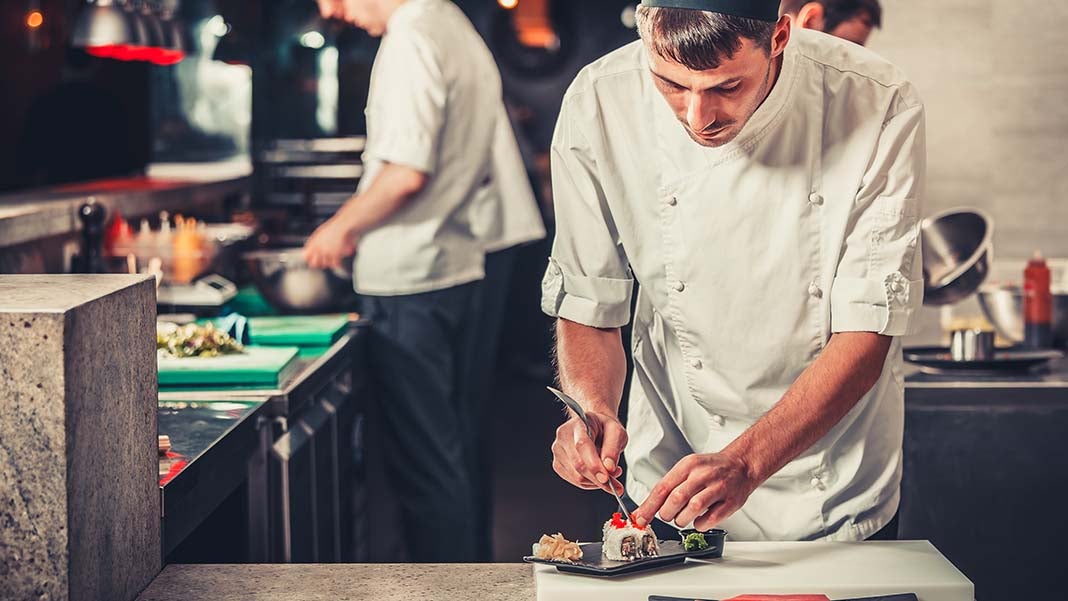
Starting a small business is a great goal for anyone to have, but it comes along with a lot of responsibilities and hard work. This is especially true if you plan on entering the food industry. A company that’s based around producing and selling good food can be fantastically successful and, if you enjoy cooking, it can also be enjoyable. However, you should be prepared.
Even more so than other industries, it’s painfully easy to destroy your small food business before it can get off the ground. To avoid this and increase your chances of success, make sure that you have everything ready before you launch. Here are some of the things you need to know before you start.
Solidify Your Business Idea
Some steps are the same when you start any business. Two of these are coming up with a solid business idea and then turning it into a plan that you can implement with confidence. It’s one thing to come up with a vague idea to enter the food industry, but it’s another thing entirely to work out exactly what you want to do and how to do it.
The food industry is enormous, so your first step is to narrow down your niche. You have a lot of options, including opening a restaurant, setting up a catering business, manufacturing and sending out food, or even getting a food truck. You also need to figure out a menu, or a list of products that you plan to produce.
Once you know what you plan to do in your business and, ideally, come up with a business name, you can start planning for how you will successfully set up your business and sell products. You don’t need to work out every detail right away, but it pays to do research in your industry and figure out the best way to get started. This includes working out funding and licenses.
Funding Your Business
Money makes the world go around. This is especially true of the business world. Some businesses need more money than others to get off the ground, and the food industry will always require some measure of investment.
Your specific niche will determine exactly how much money you need to get things off the ground. You need to work out what you need to get started, as well as how you can pay for it.
For example, opening a restaurant or cafe will require hiring or buying a commercial property and kitting it out with a kitchen and seating areas. However, setting up a food truck is less of an investment, as all you need to do is purchase the truck and make sure that its fit for purpose.
Some people even cook out of their home kitchens. However, you still need to invest some money in your venture so that you can buy supplies and any equipment needed. If you’re shipping food products from your kitchen, you will also need to buy appropriate, food-safe packaging like Redi-Bag flexible packaging.
In short, there will always be a measure of expense and it’s your responsibility to make sure that you can fund it. You can fund your business by saving money, but larger investments (like a restaurant or a food truck) will likely require more than you can pay out up-front. In this scenario, you can get a business loan from a bank or contact potential investors for funding.
When getting someone else to invest in your business, either as shareholders or by providing a loan, you will need to prove that your business can pay them back. Most banks won’t be willing to provide a loan without a business plan, and shareholders or other investors are a similar story. Your business plan doesn’t just help you when setting up your business, but it can be the difference between success and failure before you even start.
Licenses and Certifications
One major difference between the food industry and other businesses is that you need to make sure that you have all of the necessary licenses and certifications before you start conducting business. If you neglect this step, then your business can get shut down and you can even be subject to serious legal trouble.
Food licensing exists to ensure that any food being produced and sold to customers is safe to consume. The kind of licensing that you need can differ depending on where you live and what kind of business you are running. A restaurant will require different licenses and permits than a food truck or a catering business. You need to research exactly what kinds of licenses you need and how to acquire them.
Getting a permit or license often costs money, so you should also factor this into your business budget. Your premises will likely be inspected to make sure that it is clean and appropriate for a commercial business. This even applies if you’re running your business out of your domestic kitchen.
Food-Safe Practices and Training
As well as making sure that your kitchen is clean and safe to sell food from, you need to ensure that you and your staff are appropriately trained. You don’t need to be a qualified chef to sell food from a truck or run a home bakery, but it does pay to make sure that you have had a measure of training.
Anyone who works in your kitchen and who is involved with any stage of food preparation should be trained in food-safe practices. You should know how to avoid cross-contamination and how to operate the tools and equipment in your kitchen safely.
As well as training, you should keep your kitchen clean and supplied with clothing and equipment to keep everything as hygienic as possible. This includes using hairnets, aprons, and gloves when preparing food for other people. This keeps you and your clothes clean and makes sure that the food doesn’t get contaminated by anything.
Kitchen Equipment and Tools
You should also make sure that your kitchen is appropriately equipped for what you plan on serving. You don’t need to stock your kitchen with all of the highest-grade professional equipment, but it does make sense to scale your kitchen and equipment to what your menu requires.
For example, if you are running a bakery, then you will need to make sure that you have a reliable oven that can cope with the workload. You might also need a food mixer to save time and manpower. Managing where you put your time and effort is a vital part of running any business, so don’t be tempted to spend ages on something just to save a little bit of money.
You should also invest in safe and appropriate storage for food so that it doesn’t get spoiled or get contaminated. This saves money on food wastage and makes sure that your food is safe for your customers. It’s never good business to poison your customers. One good practice is to invest in stainless steel equipment as much as possible. This is because stainless steel is easy to keep clean and hygienic.
As your business grows, your kitchen’s needs will grow to match it. Keep your equipment well-maintained and pay attention to any bottlenecks in your kitchen. A food truck is more limited than a full-sized kitchen, but there’s no reason to neglect it.
Your kitchen is the heart of your business, so take care of it and it will take care of you.
2285 Views














